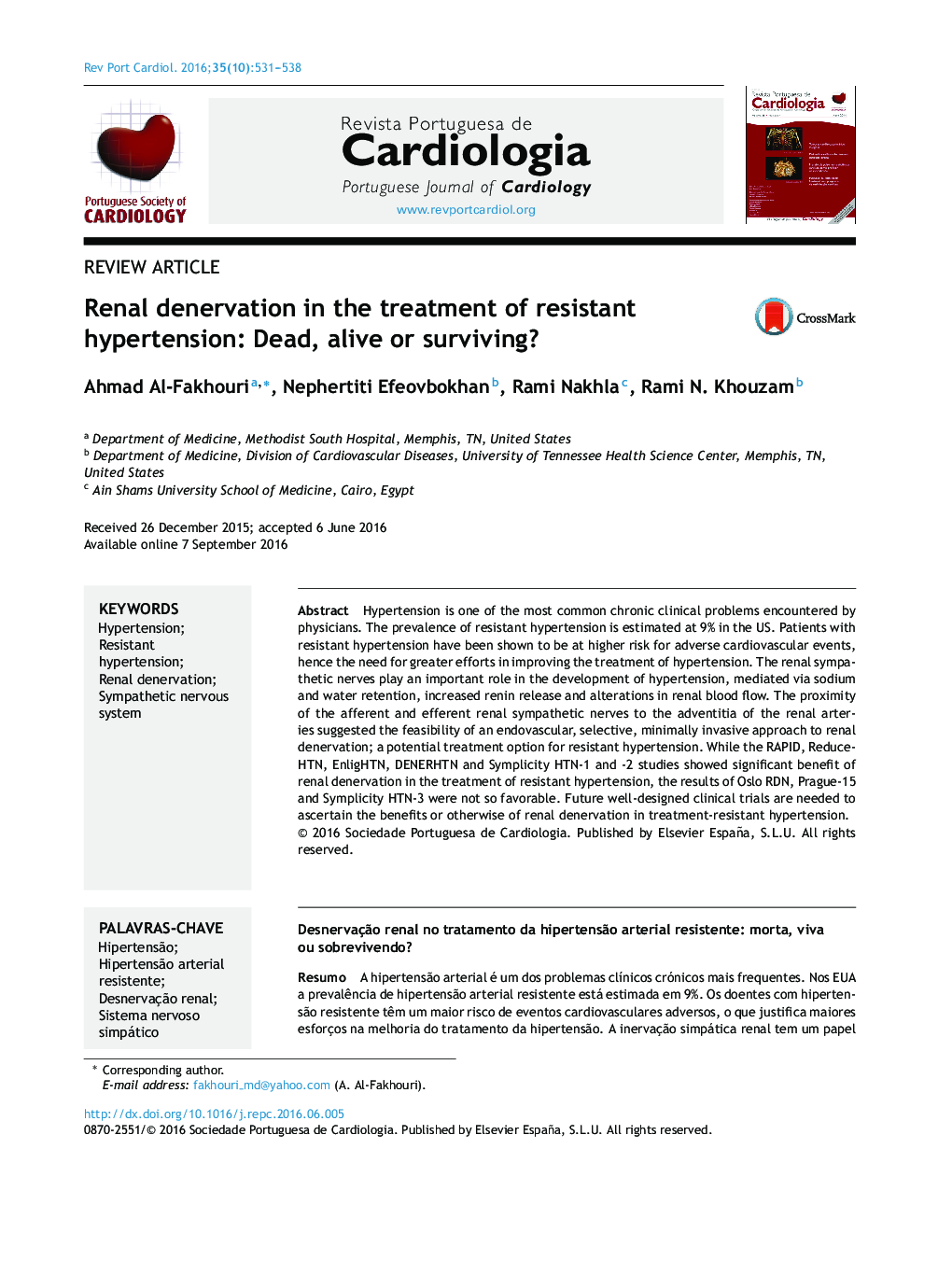| Article ID | Journal | Published Year | Pages | File Type |
|---|---|---|---|---|
| 5126531 | Revista Portuguesa de Cardiologia | 2016 | 8 Pages |
Hypertension is one of the most common chronic clinical problems encountered by physicians. The prevalence of resistant hypertension is estimated at 9% in the US. Patients with resistant hypertension have been shown to be at higher risk for adverse cardiovascular events, hence the need for greater efforts in improving the treatment of hypertension. The renal sympathetic nerves play an important role in the development of hypertension, mediated via sodium and water retention, increased renin release and alterations in renal blood flow. The proximity of the afferent and efferent renal sympathetic nerves to the adventitia of the renal arteries suggested the feasibility of an endovascular, selective, minimally invasive approach to renal denervation; a potential treatment option for resistant hypertension. While the RAPID, Reduce-HTN, EnligHTN, DENERHTN and Symplicity HTN-1 and -2 studies showed significant benefit of renal denervation in the treatment of resistant hypertension, the results of Oslo RDN, Prague-15 and Symplicity HTN-3 were not so favorable. Future well-designed clinical trials are needed to ascertain the benefits or otherwise of renal denervation in treatment-resistant hypertension.
ResumoA hipertensão arterial é um dos problemas clÃnicos crónicos mais frequentes. Nos EUA a prevalência de hipertensão arterial resistente está estimada em 9%. Os doentes com hipertensão resistente têm um maior risco de eventos cardiovasculares adversos, o que justifica maiores esforços na melhoria do tratamento da hipertensão. A inervação simpática renal tem um papel importante no desenvolvimento da hipertensão, mediada através da retenção de sódio e água, com aumento da libertação de renina e de alterações do fluxo sanguÃneo renal. A anatomia da inervação simpática renal, com os seus nervos aferentes e eferentes em relação de proximidade com a adventÃcia, permite uma abordagem endovascular, seletiva e minimamente invasiva para a desnervação renal, e constitui uma opção de tratamento potencial para a hipertensão arterial resistente. Enquanto os estudos RAPID, Reduce-HTN, EngliHTN, DENERHTN e Simplicity HTN 1,2 mostraram um benefÃcio significativo da desnervação renal no tratamento da hipertensão arterial resistente, os resultados dos estudos Oslo-RDN, Prague-15 e Simplicity HTN 3 não foram tão favoráveis. Serão necessários ensaios clÃnicos bem estruturados para confirmar ou infirmar os potenciais benefÃcios da desnervação renal no tratamento da hipertensão arterial resistente.
